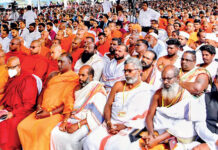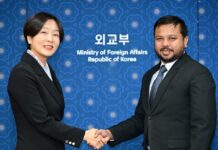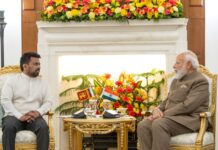As long as there is a lack of accountability in the island country, the UN’s deputy human rights chief urged the international community on Wednesday to use recognized principles of universal and extraterritorial jurisdiction to look into and prosecute alleged human rights violators in Sri Lanka.
Additionally, she urged them to support the pertinent accountability procedures in other countries as well as the fair application of targeted sanctions against those who were allegedly responsible for Sri Lanka’s human rights breaches.
The UN’s Deputy High Commissioner for Human Rights, Nada Al-Nashif, gives the oral update on Sri Lanka during the 53rd Regular Session of the UN Human Rights Council. She focuses on some important developments and trends from the OHCHR’s close monitoring of the situation in Sri Lanka ahead of the full written update that will be given to the council at its 54th session.
She claimed that many Sri Lankans’ rights and general well-being are still being severely impacted by the economic crisis. Although the International Monetary Fund (IMF) agreed a financial support package, which is a significant first step, it is necessary to ensure that the cost of prospective changes does not further exacerbate inequality. Discussions with creditors are currently underway.
She said that in order to safeguard the most vulnerable from the harmful effects of economic restructuring, strong safety nets and social protection measures are required.
In addition, the Deputy High Commissioner emphasized the importance of addressing the root causes of the issue, such as corruption, which was a resounding and important demand of the demonstrations that took place last year. She pointed out that the protest movement clearly articulated the desires of people for inclusive leadership and a better future for and with Sri Lanka.



